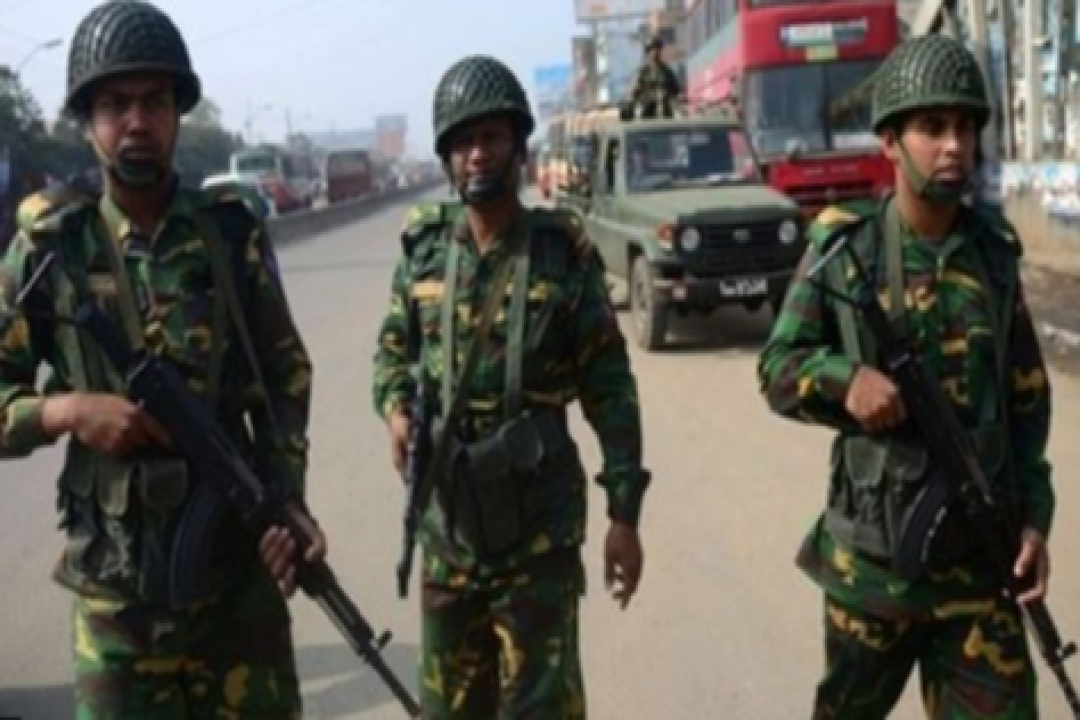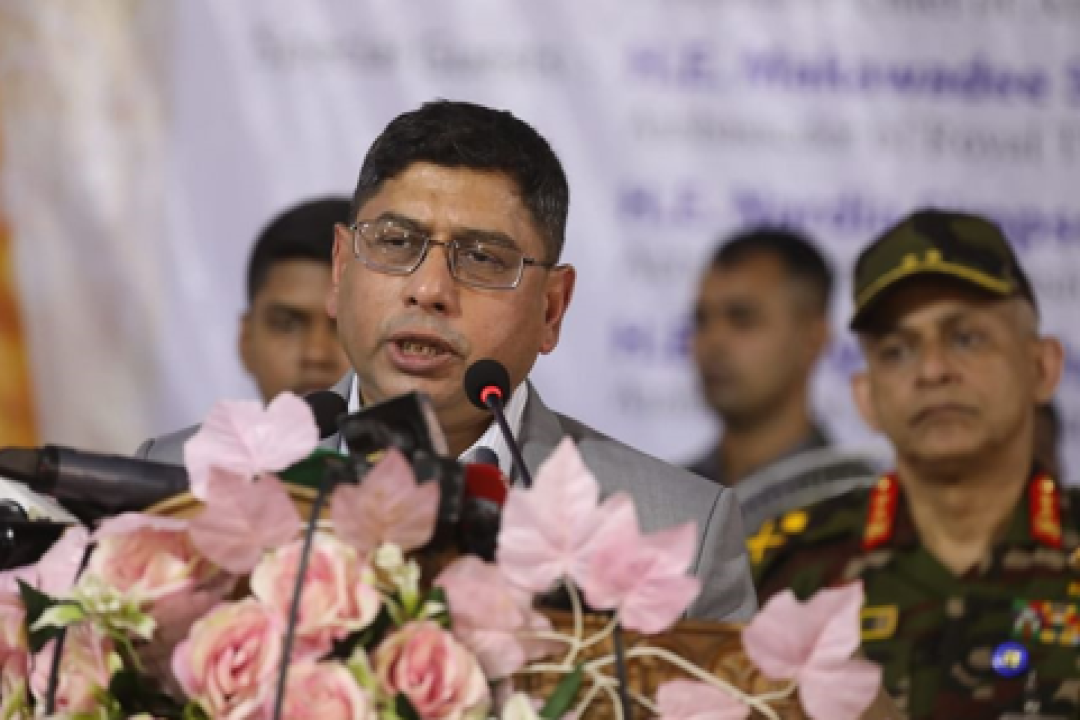The government has issued notification granting executive magistracy powers to commissioned officers of the Bangladesh Armed Forces.
The Ministry of Public Administration issued the notification under the directive of the president. Starting from the issuance date, these powers will remain in effect for 60 days across the country.
Sami Ud Dowla Chowdhury, director of the Inter-Services Public Relations (ISPR) directorate, said the armed forces would work in line with the government directive.
The notification grants magistracy authority to Bangladesh Army, Air Force and Navy under sections 64, 65, 83, 84, 95(2), 100, 105, 107, 109, 110, 126, 127, 128, 130, 133 and 142 of the Code of Criminal Procedure (CrPC). The Armed Forces officers will be able to exercise their magistracy powers in cases of crimes falling under these provisions.
However, they will carry out their duties under the supervision of the relevant district magistrates or deputy commissioners.
These sections cover powers such as issuing orders for arrest and detention, executing arrest warrants, issuing search warrants, collecting bonds for misdemeanors and petty offences, dispersing unlawful assemblies, and removing encroachments on immovable property and business establishments.
According to these sections of the CrPC, special executive magistrates will be given various powers, including taking necessary measures to prohibit harm to people
Powers they can exercise
Section 64 of the CrPC states that if a crime occurs in the presence of an executive or judicial magistrate, they can make arrests and grant bail. This means that army officers, acting as executive magistrates, will now be able to arrest offenders directly if a crime is committed in their presence during their duties.
Section 65 allows them to order arrests or issue arrest warrants within their jurisdiction, even if the crime is not committed in their presence. This enables officers to arrest suspected criminals in their area of operation.
Section 83 permits the enforcement of arrest warrants outside their jurisdiction. In other words, army officers can execute arrest warrants anywhere in Bangladesh. Additionally, under Section 84, they can instruct the police to execute warrants outside their jurisdiction.
Under Section 95, they can use postal or telegraph authorities to issue warrants or exchange documents and letters.
In accordance with Section 100, army officers can search any location to rescue a person illegally detained. For instance, if they receive information about a kidnapping or illegal confinement, they can conduct a search. Beyond this, officers are also empowered under Section 105 to conduct searches anywhere.
Section 107 allows them to take necessary security measures to maintain peace.
Under Section 109, they can require suspicious or vagrant individuals to sign a bond for good behaviour. Besides, Section 110 authorizes officers to require habitual offenders to sign a bond for good behaviour.
Meanwhile, Section 126 lets them issue a summons or arrest warrant by cancelling the bond of individuals who have provided assurances of good conduct.
Section 127 grants army officers the power to order the dispersal of unlawful assemblies. This section allows executive magistrates and officers-in-charge of police stations to disperse gatherings of five or more persons. Army officers, under this provision, can also disperse any illegal assembly.
Section 128 allows them to use civilian forces to disperse assemblies. This means they can seek assistance or give orders to the police or other civilian forces if necessary.
Section 130 lets them assign responsibilities to commanding officers of the army to disperse assemblies.
Section 133 permits them to issue conditional orders to remove any nuisance, and under Section 142, they can issue injunctions to investigate any disputed matter.
According to the notification, commissioned officers of the armed forces have the powers of an executive magistrate under Section 12(1) of the CrPC, 1898.
In addition to these powers, any executive magistrate is authorized under the Mobile Courts Act, 2009 to operate mobile courts by the government and the district magistrate within their respective jurisdiction.
Under this Act, executive magistrates may take cognizance of offences committed in their presence or those reported to them on the spot. Upon the accused's confession, a magistrate may impose a sentence in accordance with the relevant laws, with a maximum penalty of up to two years.
November 24, 2024
Dhaka set to sign defense deal with TokyoNovember 24, 2024
Magistracy power for officers of Armed Forces for another 60 daysNovember 24, 2024
Government to decide how long army will remain deployed in the fieldNovember 24, 2024
Army recovers huge cache of arms, ammunition from KNF denNovember 24, 2024
Army cautions against misuse of its name in jhut business: ISPRNovember 24, 2024
Singapore’s high commissioner meets Army ChiefNovember 24, 2024
Army chief visits Cox’s BazarNovember 24, 2024
65 citizens from Myanmar's tribal communities enter Bangladesh illegallyNovember 24, 2024
Who is Trump intelligence pick Tulsi Gabbard?November 24, 2024
Pentagon stunned after Trump picks Pete Hegseth for Defense SecretaryNovember 24, 2024
Ukraine marks 1,000 days of war with pledge to ‘never submit’ to RussiaNovember 24, 2024
Arrest warrants issued for Netanyahu, Gallant over war crimesNovember 11, 2024
Deputy Commander of US Indo-Pacific Command calls on Army ChiefNovember 11, 2024
Air chief off to China on nine-day visitNovember 11, 2024
Recruit batch parade of EME and ACC Corps heldFollow Us

50,000
Fans

50,000
Fans

50,000
Fans

50,000
Fans

50,000
Fans

50,000
Fans







